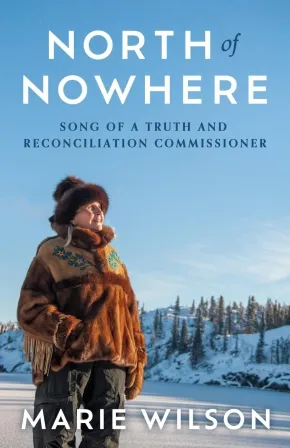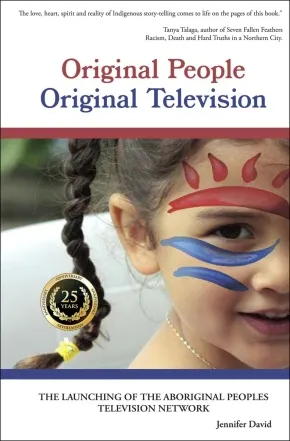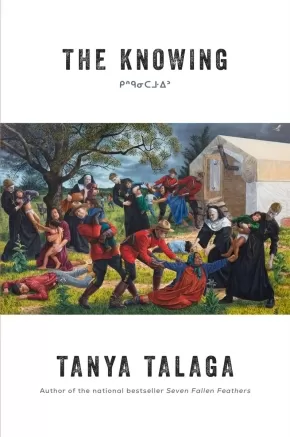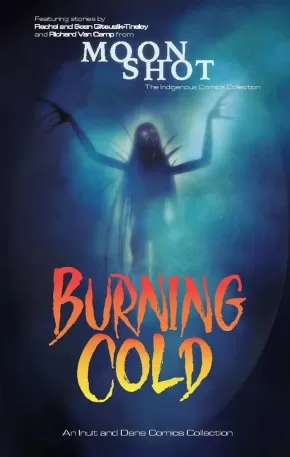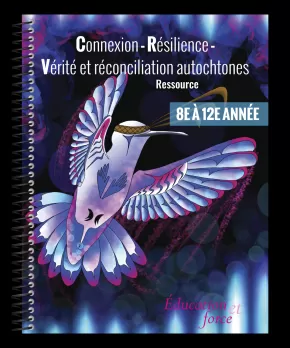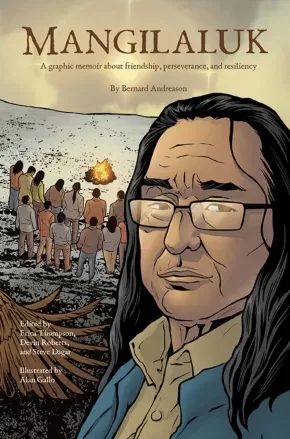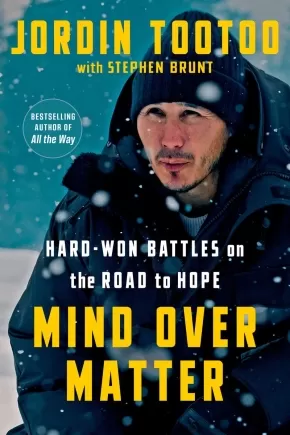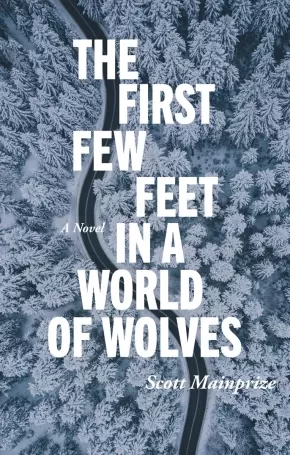
Inuit
16
-
30
of
87 Results;
Sort By
Go To
of 6
North of Nowhere: Song of a Truth and Reconciliation Commissioner
$34.99
Format:
Hardcover
Text Content Territories:
Indigenous Canadian; First Nations; Inuit; Métis;
ISBN / Barcode: 9781487011482
Synopsis:
Synopsis:
The incomparable first-hand account of the historic Truth and Reconciliation Commission of Canada told by one of the commissioners who led it.
The Truth and Reconciliation Commission was established to record the previously hidden history of more than a century of forced residential schooling for Indigenous children. Marie Wilson helped lead that work as one of just three commissioners. With the skills of a journalist, the heart of a mother and grandmother, and the insights of a life as the spouse of a residential school survivor, Commissioner Wilson guides readers through her years witnessing survivor testimony across the country, providing her unique perspective on the personal toll and enduring public value of the commission. In this unparalleled account, she honours the voices of survivors who have called Canada to attention, determined to heal, reclaim, and thrive.
Part vital public documentary, part probing memoir, North of Nowhere breathes fresh air into the possibilities of reconciliation amid the persistent legacy of residential schools. It is a call to everyone to view the important and continuing work of reconciliation not as an obligation but as a gift.
Reviews
"I found Marie Wilson's North of Nowhere profoundly moving and surprisingly optimistic. With humility and wisdom, she takes us behind the scenes of the Truth and Reconciliation Commission. As a non-Indigenous woman long settled in the North, she has a unique viewpoint, and she leavens an account of the traumatic intergenerational impact of residential schools with details from her own personal story. Wilson goes beyond the grief and misery triggered by the Truth aspect of the TRC to suggest the joy and laughter that true Reconciliation can produce in survivors. But reconciliation will be achieved only if we don't look away. North of Nowhere is a powerful book that shifted my perspective, and, thanks to Wilson's lucid prose, helps the rest of us glimpse what is needed." — Charlotte Gray (CM), author of Passionate Mothers, Powerful Sons: The Lives of Jennie Jerome Churchill and Sara Delano Roosevelt
"For anyone wanting a front row seat to the Spirit, the vision, and the mechanics of the Truth and Reconciliation Commission of Canada, North of Nowhere is definitely it. Commissioner Dr. Marie Wilson recounts and celebrates the courage of everyone involved in one of Canada's most important chapters of coming to terms with residential school Survivors and their families and their communities forever changed with a policy of cultural genocide. I hope everyone reads this and finds their way to support Survivors, their families, and their communities as they continue to reclaim so much of what was stolen. What a profound and riveting read." — Richard Van Camp, author of The Lesser Blessed and Godless but Loyal to Heaven
"The long-matured work of a true elder, this magnificent book is a sober masterpiece of sacred activism. It deserves to be read by everyone aghast at the chaos and cruelty of our world. Its level decency of tone, its lucidity, its determined hope in terrible circumstances both transmit and model those qualities we all now need to build a new world out of the smouldering ashes of the old." — Andrew Harvey, author of The Hope: A Guide to Sacred Activism
"In North of Nowhere, Marie Wilson honours her vow to residential school Survivors to 'do no harm' and to bear witness to and honour their experiences. Marie has achieved her purpose to educate readers and inspire reconciliation and, most importantly, hope. 'I see you. I hear you. I believe you. And I love you'-Marie's words as a Commissioner to Survivors set the tone for this very important book." — Perry Bellegarde, former National Chief of the Assembly of First Nations
"This book is one of the best I've ever read. It made me laugh, get emotional, and helped reset my journey on the role I need to play. As a child of residential school Survivors, I was motivated to continue to learn my language and strengthen my pride as an Indigenous person. Truth must come before reconciliation; this book will empower Canadians to focus on what we can control today when it comes to implementing the Calls to Action. This book advocates for building awareness, understanding, and long-term relationships between Indigenous people and Canadians. If every Canadian reads this book, the Truth and Reconciliation Calls to Action can be achieved." — Cadmus Delorme, former chief of Cowessess First Nation
"Journalist Marie Wilson brings us into the emotion-charged rooms, the sacred spaces of Canada's Truth and Reconciliation hearings. She listens with the heart of a mother, looking into the souls of the adult Survivors standing before her and seeing the children they once were. Though she holds nothing back, in the end this is a triumphant, restorative narrative-a testament to the healing that happens when we share our deepest, darkest truths." — Judy Rodgers, founding director of Images & Voice of Hope, board member of The Peace Studio
"North of Nowhere is the story of a national soul-searching, braided with Dr. Marie Wilson's own personal story and her unique perspective as a Truth and Reconciliation Commissioner. Every page tells a story. This is a book that is bound to ignite dialogue. It has been a catalyst that has been the spark for numerous visits, deep discussions, and reflections, which is why we wanted to write a collective review. Marie's writing had us thinking and talking about the stories, truths, and wisdom shared throughout the pages. Through her writing, Marie elicits emotional and insightful responses that move us along our own journeys of understanding the truth of Canada." — Shelagh Rogers and Monique Gray Smith
"Marie Wilson is the truth keeper entrusted with the accounts of the First Nations, Métis, and Inuit children who went to residential schools, the memories of those who did not make it home and the fate of us all if we do not learn from the past. The savagery of 'civilization' comes into stark relief as children emerge from the pages to awaken the national consciousness and render the TRC Calls to Action imperative." — Cindy Blackstock, executive director, First Nations Child & Family Caring Society
"Beautifully written, Marie Wilson's North of Nowhere is a stunning work of truth, power, and wisdom. An imperative read for all Canadians to understand the layers of shrapnel left by the residential school system that will leave you with emotion and hope. Wilson is an incredibly brilliant and gifted writer." — Angela Sterritt, author of Unbroken: My Fight for Survival, Hope, and Justice for Indigenous Women and Girls
Educator Information
Curriculum Connections: Social Science, Ethnic Studies, Canadian Studies, Indigenous STudies
Additional Information
384 pages | 6.00" x 9.00" | Hardcover
Original People, Original Television: The Launching of the Aboriginal Peoples Television Network (Special Edition)
$28.95
Format:
Paperback
Text Content Territories:
Indigenous Canadian; First Nations; Inuit; Métis;
Reading Level: N/A
ISBN / Barcode: 9781926886626
Synopsis:
Synopsis:
Original People, Original Television is the behind-the-scenes account of a little known revolution in Canadian broadcasting—a journey begun in 1922 with Nanook of the North, wending its way across generations and the width and breadth of the traditional territories of the Inuit, First Nations and Métis; culminating in the 1999 launch of the world’s inaugural Indigenous led broadcast, the Aboriginal Peoples’ Television Network.
Additional Information
282 pages | 9.00" x 6.00" | b&w photos, index, bibliography | Special Edition | Paperback
Righting Canada's Wrongs Indigenous Studies Resource Guide (6 in Stock)
$24.95
Format:
Paperback
Text Content Territories:
Indigenous Canadian; First Nations; Inuit; Métis;
ISBN / Barcode: 9781459419643
Synopsis:
Synopsis:
A resource guide for the Righting Canada’s Wrongs Indigenous Studies set that provides lessons in historical thinking.
The Righting Canada's Wrongs Indigenous Studies set series is devoted to the exploration of racist and discriminatory government policies and actions against Indigenous peoples through our history, the fight for acknowledgement and justice and the eventual apologies and restitution of subsequent governments. The books in this series make a valuable addition to any classroom or library looking for kid-friendly and appealing resources on Indigenous Studies and equal rights in Canada. The engaging and curriculum-based lessons in this Resource Guide will help students to further understand some of the important events in Canada's history that helped shape our current multicultural society. Educators will find support for teaching about Canada's past and ongoing treatment of Indigenous Peoples and how to approach the topic of, colonization, racism and discrimination. As well, students will learn about the important cultures and traditions that have continued in the face of colonization.
Educator Information
Recommended for use with ages 13+
This resource guide provides lessons in historical thinking for the Righting Canada’s Wrongs Indigenous Studies set:
- Righting Canada's Wrongs: Inuit Relocations: Colonial Policies and Practices, Inuit Resilience and Resistance
- Righting Canada's Wrongs: Residential Schools: The Devastating Impact on Canada's Indigenous Peoples and the Truth and Reconciliation Commission's Findings and Calls for Action (PB) - 2nd Edition
- Righting Canada's Wrongs: The Sixties Scoop and the Stolen Lives of Indigenous Children
Additional Information
120 Pages | 8.5" x 11" | Paperback
The Cannibal
$22.95
Artists:
Format:
Paperback
Text Content Territories:
Indigenous Canadian; Inuit;
ISBN / Barcode: 9781772274813
Synopsis:
Synopsis:
Based on an Inuit traditional story passed down orally for generations, The Cannibal tells the horrific tale of a family experiencing starvation when the animals they rely on for survival disappear. While the wife stays alive by eating plants she gathers daily, the husband does the unthinkable, resorting to murder and cannibalism. Horrified, and terrified for her life, the wife eventually finds herself alone in camp with her husband. She knows what will happen to her if she does not find a way to escape. Hatching a plan, the exhausted wife embarks on the journey with her murderous husband in pursuit. After safely arriving at a nearby camp, she shares the story of what has become of her camp, and her own children. Soon the husband arrives, and the camp must decide how to deal with the cannibal. Both horrific and poignant, this cautionary traditional story provides a window into the at times harsh realities of traditional life.
Reviews
"The Cannibal by Solomon Awa and Louise Flaherty is a stark and compelling novel centred on an Inuit family facing extreme survival challenges in the Arctic. When the family’s father, driven by desperation, begins to resort to cannibalism to stay alive, the story delves into harrowing themes of survival, morality, and the impact of isolation on human behaviour. This topic is suitable for an older audience, not younger students." - David D., Indigenous Educator & Administrator, Indigenous Books for Schools
Educator Information
The publisher labels this work as an "Adult Graphic Novel."
Recommended in the Indigenous Books for Schools catalogue as a valuable resource for grades 10 to 12 for English Language Arts and Social Studies.
Themes: Animals, Death, Environment, Loss, Reconciliation
Caution: Contains cannibalism
Additional Information
44 pages | 7.00" x 10.50" | Paperback
The Knowing
$39.99
Format:
Hardcover
Text Content Territories:
Indigenous Canadian; First Nations; Anishinaabeg; Ojibway; Inuit; Métis;
Reading Level: N/A
ISBN / Barcode: 9781443467506
Synopsis:
Synopsis:
From Tanya Talaga, the critically acclaimed and award-winning author of Seven Fallen Feathers, comes a riveting exploration of her family’s story and a retelling of the history of the country we now call Canada
For generations, Indigenous People have known that their family members disappeared, many of them after being sent to residential schools, “Indian hospitals” and asylums through a coordinated system designed to destroy who the First Nations, Métis and Inuit people are. This is one of Canada’s greatest open secrets, an unhealed wound that until recently lay hidden by shame and abandonment.
The Knowing is the unfolding of Canadian history unlike anything we have ever read before. Award-winning and bestselling Anishinaabe author Tanya Talaga retells the history of this country as only she can—through an Indigenous lens, beginning with the life of her great-great grandmother Annie Carpenter and her family as they experienced decades of government- and Church-sanctioned enfranchisement and genocide.
Deeply personal and meticulously researched, The Knowing is a seminal unravelling of the centuries-long oppression of Indigenous People that continues to reverberate in these communities today.
Additional Information
480 pages | 6.12" x 9.25" | Hardcover
Burning Cold: An Inuit and Dene Comics Collection
$19.95
Format:
Paperback
Text Content Territories:
Indigenous Canadian; First Nations; Dene; Inuit;
ISBN / Barcode: 9781774506547
Synopsis:
Synopsis:
Journey to the depths of the Arctic and beyond in this unique collection of stories from the award-winning volumes of Moonshot: The Indigenous Comics Collection.
Burning Cold is a captivating volume of Indigenous graphic stories written by acclaimed authors Sean and Rachel Qitsualik-Tinsley and Richard Van Camp. Time travel on the back of a wolverine, swim with shapeshifters beneath the ice, and travel through the skies with aliens. From traditional stories to reimagined futures, this collection showcases some of the finest comic book and graphic novel work from the North.
Educator Information
Recommended for Young Adults.
Additional Information
100 pages | 6.50" x 10.25" | Colour Illustrations | Paperback
Carving Space: The Indigenous Voices Awards Anthology
$24.95
Editors:
Format:
Paperback
Text Content Territories:
Indigenous Canadian; Métis; Inuit; First Nations;
ISBN / Barcode: 9780771004858
Synopsis:
Synopsis:
To celebrate the fifth anniversary of the Indigenous Voices Awards, an anthology consisting of selected works by finalists over the past five years, edited by Jordan Abel, Carleigh Baker, and Madeleine Reddon.
For five years, the Indigenous Voices Awards have nurtured the work of Indigenous writers in lands claimed by Canada. Established in 2017 initially through a crowd-funded campaign by lawyer Robin Parker and author Silvia Moreno-Garcia that set an initial fundraising goal of $10,000, the initiative raised over $116,000 in just four months.
Through generous support from organizations such as Penguin Random House Canada, CELA, and others, the award has grown and have helped usher in a new and dynamic generation of Indigenous writers. Past IVA recipients include Billy-Ray Belcourt, Tanya Tagaq, and Jesse Thistle. The IVAs also help promote the works of unpublished writers, helping launch the careers of Smokii Sumac, Cody Caetano, and Samantha Martin-Bird.
For the first time, a selection of standout works over the past five years of the Indigenous Voices Award will be collected in an anthology that will highlight some of the most groundbreaking Indigenous writing across poetry, prose, and theatre in English, French, and in an Indigenous language. Curated by award-winning and critically acclaimed writers Carleigh Baker, Jordan Abel, and Indigenous scholar Madeleine Reddon, this anthology will be a true celebration of Indigenous storytelling that will both introduce readers to emerging luminaries as well as return them to treasured favourites.
Educator Information
Carving Space: The Indigenous Voices Awards Anthology: A collection of prose and poetry from emerging Indigenous writers in lands claimed by Canada includes a selection of standout work from the first five years of the Indigenous Voices Awards.
Additional Information
400 pages | 5.50" x 8.25" | Paperback
Connexion - Résilience - Vérité et réconciliation autochtones Ressource - 8e à 12e année
$29.95
Artists:
Format:
Coil Bound
Text Content Territories:
Indigenous Canadian; First Nations; Inuit; Métis;
ISBN / Barcode: 978-1-990448-39-3
Synopsis:
Synopsis:
Ce livre est conçu pour éduquer tous les enfants et les jeunes - nos futurs dirigeants - sur l'histoire Autochtone et les événements actuels. Il est destiné à mieux faire comprendre et à contribuer positivement à la réconciliation.
Ensemble, nous devons tenir compte du passé, du présent et de l'avenir dans nos efforts pour nous améliorer et améliorer les générations futures.
Ce livre offre une multitude d'articles et d'activités d'apprentissage de haute qualité, comprenant des Unitéés et des leçons qui peuvent être utilisées par n'importe qui enseignants, parents, étudiants, professionnels des affaires qui peut avoir peu ou pas de connaissances ou de compréhension préalables des Peuples ou des sujets Autochtones.
Dans ce livre, vous rencontrerez de vrais Peuples Autochtones qui s'expriment et partagent leurs histoires et expériences directes, et vous entendrez clairement leur passion pour la réconciliation.
Ce livre est unique, les histoires racontées dans ses couvertures sont uniques, tout comme chacun travaille à travers son propre voyage de compréhension et de faire sa petite part vers la réconciliation.
Educator Information
Recommended for grades 8 to 12.
A $5 per book discount is applied to a purchase of 10 or more books.
This workbook is available in English: Connecting – Resilience – Indigenous Truth & Reconciliation ‘CRITR’ Workbook: Grade 8 - 12
Additional Information
Spiral bound
Elements
$21.95
Format:
Paperback
Text Content Territories:
Indigenous Canadian; Inuit;
Reading Level: N/A
ISBN / Barcode: 9781772274844
Synopsis:
Synopsis:
In this complex, at times dark, poetry collection from Inuk author Jamesie Fournier, readers are taken through the recesses of a character struggling with inner demons whispering into his mind.
As he attempts to overcome his inner turmoil within a Colonial and contemporary system that oppresses him, the speaker guides readers through verse both ethereal and imagistic. Echoing artists as varied as Margaret Laurence and The Velvet Underground, this sweeping collection of bilingual verse deals with erasure, resilience, and—above all—resistance through the voice of one complex protagonist.
Educator Information
Bilingual Verse in English and Inuktitut
Additional Information
132 pages | 7.00" x 9.25" | 10 b&w Photos | Paperback
Mangilaluk: A Graphic Memoir about Friendship, Perseverance, and Resiliency
$18.95
Artists:
Format:
Paperback
Text Content Territories:
Indigenous Canadian; Inuit;
ISBN / Barcode: 9781774507384
Synopsis:
Synopsis:
“Some children are born into the world and are home as soon as they come Earthside. Others spend their lifetimes searching for a home, a place to belong, a place where they are safe. I am one of those children.”
After running away from residential school, Bernard Andreason and his two best friends begin a harrowing 130-kilometre journey from Inuvik to Tuktoyaktuk, one which only Bernard would survive. In this heartbreaking and beautifully told graphic memoir, Bernard recounts his time in residential school and the tragic journey that took the lives of his two best friends. We then follow Bernard as he returns home, haunted by his past and struggling to find his place. Despite enduring more challenges into adulthood, Bernard never stops pursuing healing and higher learning, and he finds a support network that helps him. His story shows us that the possibility of finding a safe and loving home exists, and it is something every child deserves.
Mangilaluk is an extraordinarily affecting new addition to Qinuisaarniq ("resiliency"), a collection of books created to educate readers about the history and impacts of residential schools.
Educator Information
Recommended for ages 14 to 18.
Mangilaluk exposes readers to the experience and perspective of an Inuk residential school survivor. It also shares a powerful story of friendship, personal growth and self-forgiveness, and the value of finding a supportive community.
This book is part of the Qinuisaarniq program. Qinuisaarniq (“resiliency”) is a program created to educate Nunavummiut and all Canadians about the history and impacts of residential schools, policies of assimilation, and other colonial acts that have affected the Canadian Arctic.
Each resource has been carefully written and reviewed to include level-appropriate opportunities for students to learn about colonial acts and policies that have affected Inuit. These acts and policies created long-lasting impacts on Inuit individuals and communities, which are still being felt today.
Additional Information
100 pages | 7.25" x 11.00" | Paperback
Mind Over Matter: Hard-Won Battles on the Road to Hope (HC) (2 in Stock)
$34.00
Format:
Hardcover
Text Content Territories:
Indigenous Canadian; Inuit;
ISBN / Barcode: 9780735242265
Synopsis:
Synopsis:
Following the bestselling success of the inspiring All the Way, pioneering Inuit NHLer Jordin Tootoo begins the process of healing in the wake of the suicide and violence that marks his family, only to discover the source of all that trauma in his father's secret past.
For some hockey players, retirement marks the moment when it’s all over. But Jordin Tootoo is not most hockey players.
Having inspired millions when he first broke into the league, Tootoo continued to influence people throughout his career—not only through his very public triumph over alcoholism, but also his natural charisma. And now, years after hanging up his skates, he is more committed to doing things the right way and speaking about it to others, whether it’s corporate executives or Indigenous youth.
But the news of unmarked graves on the grounds of residential schools brought back to life many of the demons that had haunted his family. In a moment of realization that left him rattled and saddened, Tootoo fit the pieces together. The years that were never spoken of. The heavy drinking. The all too predictable violence. His father was a survivor, marked by what he had survived.
As he travels back to Nunavut to try to speak with his father about what haunts him, he encounters the ghosts of the entire community. Still, as Tootoo says, we are continuously learning and rewriting our story at every step. He has learned from his mistakes and his victories. He has learned from examples of great courage and humility. He has learned from being a father and a husband. And he has learned from his own Inuk traditions, of perseverance and discipline in the face of hardship.
Weaving together life’s biggest themes with observations and experiences, Jordin shares the kind of wisdom he has had to specialize in—the hard-won kind.
Additional Information
208 pages | 6.20" x 9.37" | Hardcover
Orange Shirt Day: September 30th: Revised Edition
$32.99
Format:
Hardcover
Text Content Territories:
Indigenous Canadian; First Nations; Inuit; Métis;
ISBN / Barcode: 9781778540141
Synopsis:
Synopsis:
Orange Shirt Day, observed annually on September 30th, is also known as the National Day for Truth and Reconciliation. It is an official day to honour Residential School Survivors and their families, and to remember the children who did not come home. What was initially envisioned as a way to keep the conversations going about all aspects of Residential Schools in Williams Lake and the Cariboo Region of British Columbia, Canada, has now expanded into a movement across Turtle Island and beyond. Orange Shirt Day: September 30th aims to create champions who will walk a path of reconciliation and promote the message that 'Every Child Matters'. This award-winning book explores a number of important topics including the historical, generational, and continual impacts of Residential Schools on Indigenous Peoples, the journey of the Orange Shirt Day movement, and how you can effectively participate in the National Day for Truth and Reconciliation. With end of chapter reflection questions and a series of student art submissions, readers are guided to explore how they, and others, view and participate in Residential School reconciliation.
Awards
- 2021 First Nation Communities Read 2021 Winner
Educator Information
Recommended Ages: 10+
Orange Shirt Day was inspired by the story of a survivor named Phyllis Webstad. When Phyllis was 6 years old she went to residential school for the first time wearing a brand new shiny orange shirt. When she arrived at the school her shirt was taken away and never to be seen again. To Phyllis the colour orange was a symbol that she did not matter. Today she has learned to accept the colour and even have fun with it and now the orange shirt has become a symbol of hope and reconciliation. By wearing an orange shirt on Orange Shirt Day, you make a powerful statement that residential schools were wrong and commit to the concept that EVERY CHILD MATTERS.
The Orange Shirt Society is a non-profit organization with its home in Williams Lake, BC where Orange Shirt Day began in 2013. The society has both Indigenous and non-Indigenous board members, and one of the editors of this book, Phyllis Webstad, is Indigenous. Therefore, the Authentic Indigenous Text label has been applied. It is up to readers to determine if this book is authentic for their purposes.
This is the Revised 2023, 2nd Edition
Additional Information
156 pages | 8.23" x 11.06" | Revised, 2nd Edition
Righting Canada's Wrongs: Inuit Relocations: Colonial Policies and Practices, Inuit Resilience and Resistance
$34.95
Format:
Hardcover
Text Content Territories:
Indigenous Canadian; Inuit;
ISBN / Barcode: 9781459416673
Synopsis:
Synopsis:
In a highly visual and appealing format for young readers, this book explores the many forced relocation of Inuit families and communities in the Canadian Arctic from the 1950s to the 1990s. Governments promoted and forced relocation based on misinformation and racist attitudes. These actions changed Inuit lives forever. This book documents the Inuit experience and the resilience and strength they displayed in the face of these measures. Years afterwards, there have been multiple apologies by the Canadian government for its actions, and some measure of restitution for the harms caused.
Included in the book are accounts of a community forced to move to the High Arctic where they found themselves with little food and almost no shelter, of children suddenly taken away from their families and communities to be transported to hospitals for treatment for tuberculosis, and of the notorious slaughter by RCMP officers of hundreds of sled dogs in Arctic settlements.
Though apologies have been made, Inuit in northern Canada still face conditions of inadequate housing, schools that fail to teach their language, and epidemics of infectious diseases like TB. Yet still, the Inuit have achieved a measure of self-government, control over resource development, while they enrich cultural life through music, film, art and literature.
This book enables readers to understand the colonialism and racism that remain embedded in Canadian society today, and the successful resistance of Inuit to assimilation and loss of cultural identity.
Like other volumes in the Righting Canada’s Wrongs series, this book uses a variety of visuals, first-person accounts, short texts and extracts from documents to appeal to a wide range of young readers.
Educator & Series Information
This book is part of the Righting Canada's Wrongs series.
Recommended for ages 13 to 18.
This book is available in French: Réinstallation d'Inuit: Politiques et pratiques coloniales, résilience et résistance d'un peuple.
Additional Information
144 pages | 9.01" x 11.02" | Hardcover
Rise Up and Sing!: Power, Protest, and Activism in Music
$26.95
Artists:
Format:
Hardcover
Text Content Territories:
Indigenous Canadian; Indigenous;
ISBN / Barcode: 9781771648981
Synopsis:
Synopsis:
This inspiring introduction to activism and social justice for young teens shows the important role music plays in changing the world, featuring:
- Musicians young teens will know and love: Beyoncé, Billie Eilish, Lizzo, Lady Gaga, Lil Nas X, and more!
- Iconic artists from past generations: readers will learn about the extraordinary impact of artists such as Nina Simone, Buffy Sainte-Marie, Neil Young, John Lennon, Bob Dylan, Tracy Chapman, and more.
- Playlists for each social justice issue: Each chapter includes a playlist with recommended songs about an area of activism, from classic tracks to contemporary hits.
In Rise Up and Sing!, Andrea Warner explores how music has contributed to the fight for social justice. Across eight areas of activism—the climate emergency, Indigenous rights, civil rights, disability rights, 2SLGBTQIA+ rights, gender equality, the peace/anti-war movement, and human rights—Warner introduces some of the artists, past and present, who have made a difference both on stage and off.
Through ground-breaking artists and iconic moments, Rise Up and Sing! shows us that a song is never just a song, and that music really does have the power to change the world.
Educator Information
Recommended for ages 12 to 17.
Includes some Indigenous content.
Curriculum Connections: Activism, Social Justice, Music
Additional Information
200 pages | 7.00" x 9.00" | Hardcover
The First Few Feet in a World of Wolves
$24.95
Format:
Paperback
Text Content Territories:
Indigenous Canadian; First Nations; Anishinaabeg; Algonquin; Inuit;
Reading Level: N/A
ISBN / Barcode: 9781998779093
Synopsis:
Synopsis:
The First Few Feet in a World of Wolves chronicles the fictionalization of the year the author spent teaching in Aupaluk (a remote Inuit community on the Ungava Coast of Nunavik). The story outlines, and explores, the history of oppression experienced by the more than five hundred Indigenous nations across northern Turtle Island at the hands of the Canadian government since the Royal Proclamation.
Told through the voice of Nomad, who finds himself very much at odds with the land itself. Nomad slowly learns how to reconnect with his fractured history as he embraces and is embraced by the Elders and his own students. Told is crisp, spare prose, this debut novel brings forward a powerful new Indigenous voice to the literary landscape.
Reviews
"Speaking in a voice that is both powerful and playful, Scott Mainprize weaves a thoughtful investigation into the Indigenous Peoples' oppression through the eyes of his fictional character, Nomad. And we discover as Nomad discovers that the art of storytelling is a way towards healing and reconciliation." - Mary Barnes, author of Moving Upstream
Additional Information
350 pages | 8.00" x 5.00"| Paperback
Sort By
Go To
of 6

